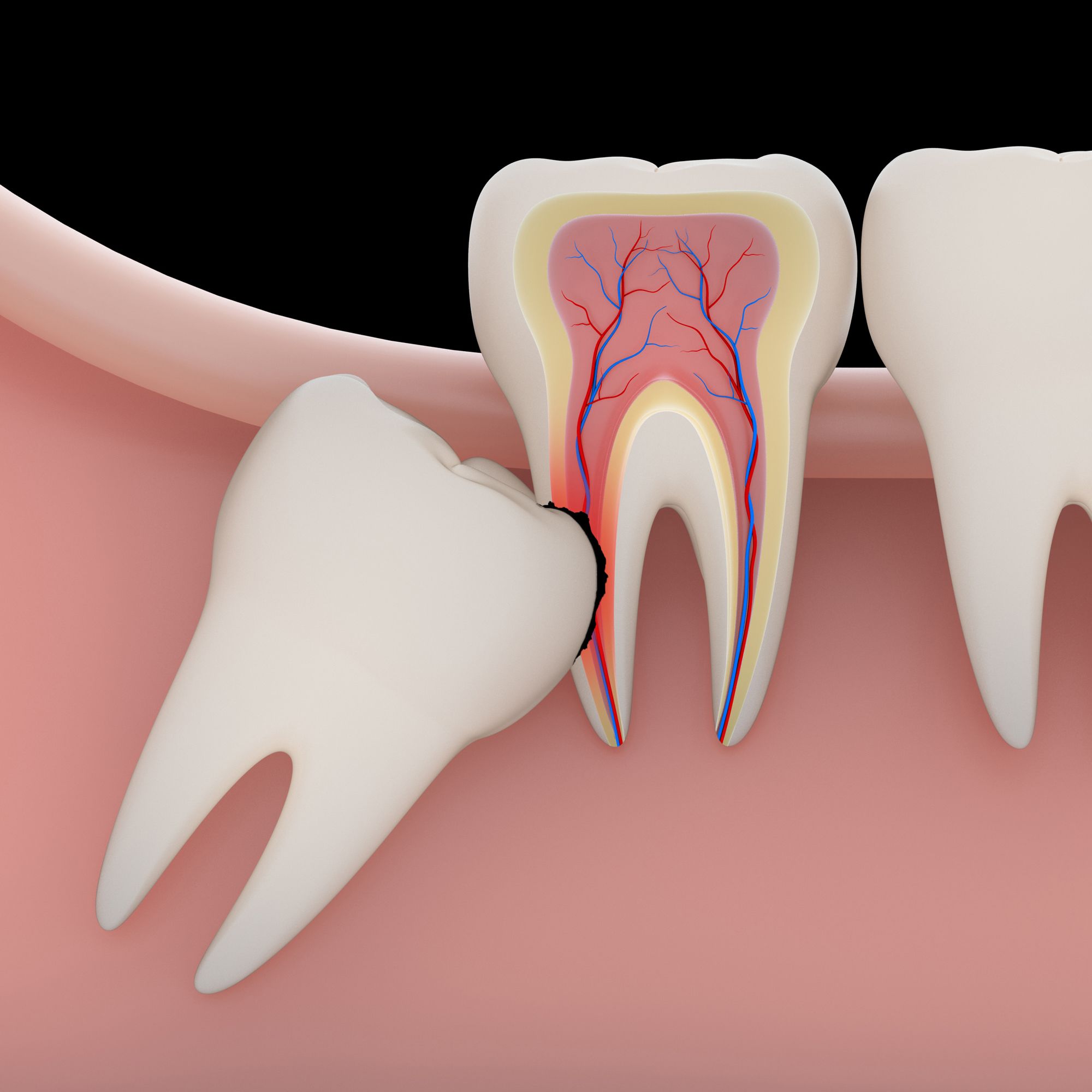Tooth Extraction Can Help You Maintain a Healthier Smile
A tooth extraction may be necessary if a tooth is severely damaged or decayed beyond repair. This is often a side effect of advanced periodontal disease or when a tooth has experienced severe damage that root canal therapy cannot treat. A tooth extraction may also be recommended if you are planning to receive a full arch denture. Our dentists can also safely remove wisdom teeth through a simple or surgical extraction. During your consultation at NÜVA Smile in any of our NJ locations,your doctor will perform a thorough evaluation to determine the best course of treatment for your needs.

Why Tooth Extraction May Be Necessary
When possible, our doctors will always try to save your natural tooth with a proven restorative or general procedure, such as a dental filling, dental crown, or root canal therapy. However, in cases where the tooth is beyond repair or has not responded well to treatment, an extraction may be necessary to ensure your continued oral health. Leaving a damaged or severely decayed tooth in place can create further harm to your gums and nearby teeth. Once your tooth is removed, our doctors can insert a dental implant and attach a customized implant-supported restoration. Depending on the severity of your tooth loss, we provide dental crowns, dental bridges, and dentures that can all be supported by implants.
You may require a tooth extraction if you have:
- A tooth that is severely cracked, broken, or damaged beyond repair
- A tooth that is severely decayed as a result of gum disease
- Wisdom teeth are impacted, partially impacted, or fully emerged but causing discomfort, infection, or overcrowding
- A baby tooth that is blocking a permanent tooth from properly emerging
- Teeth that must be extracted in order to receive dental implants, dentures, or orthodontic treatment
- A tooth that has not responded to root canal therapy
What to Expect during the Procedure
Prior to your procedure, your doctor will provide nitrous oxide to ensure your optimal comfort throughout the treatment. The type of anesthesia required will depend on the complexity of your procedure and whether you struggle with dental anxiety. Your doctor will also numb the gums with a local anesthetic.
Leaving a damaged or severely decayed tooth in place can create further harm to your gums and nearby teeth.
At NÜVA Smile, we perform both simple and complex tooth extractions to meet our patients’ unique needs. A simple extraction is recommended when a tooth has fully erupted above the gum line. During the procedure, the doctor will use a dental instrument (known as an elevator) to loosen the socket around the base of the tooth. The doctor will then use forceps to grab the crown of the tooth and rock it gently back and forth until it can be lifted out of place. Pressure and gauze will immediately be applied to the tooth to help a blood clot form.
For a tooth that is impacted, a more complex surgical procedure may be required. An incision will be made in the gums above the tooth. The doctor will then remove any tissue to gain access to the tooth. The same dental instruments used in a simple extraction will also be used during this procedure. Once the tooth is effectively loosened, the doctor will remove the tooth from the socket. Gauze and pressure will be applied to eliminate bleeding. Because an impacted tooth leaves a deeper pocket behind, sutures are generally required.
Your Recovery
After your extraction, you will be encouraged to bite down on the gauze for 30 to 45 minutes to promote faster healing and blood clot formation. If the bleeding persists, change out the gauze and maintain pressure for another 30 minutes until bleeding is minimized. Our team will provide you with detailed instructions to follow to help you achieve a smooth recovery. This will include medications to take, how to care for the surgical site, and activities to avoid so as not to dislodge the blood clot. Your postoperative instructions may include:
- No brushing near the surgical site for three days
- No smoking
- No alcohol
- No drinking from a straw
- Limited physical activity for 24 hours
You may experience some soreness and swelling for the first few days. Taking prescribed medications as directed and applying an ice pack to the outer jaw can help minimize any discomfort. Keeping your head elevated when resting, drinking plenty of water, and maintaining a soft foods diet can also aid in your recovery. If pain increases or bleeding persists, please contact our office right away, as this could be a sign of infection.
Within three to four days, you should be able to resume all normal activities. To prevent further decay from developing, it is important to follow a good oral hygiene program. We also recommend replacing your tooth immediately to help prevent bone degeneration, shifting teeth, and other oral complications.
Contact Our Office
If you believe you have a tooth that needs to be extracted, contact our practice online today to schedule your consultation. Our friendly staff can schedule a consultation with one of our doctors at any one of our 14 New Jersey area offices.
























